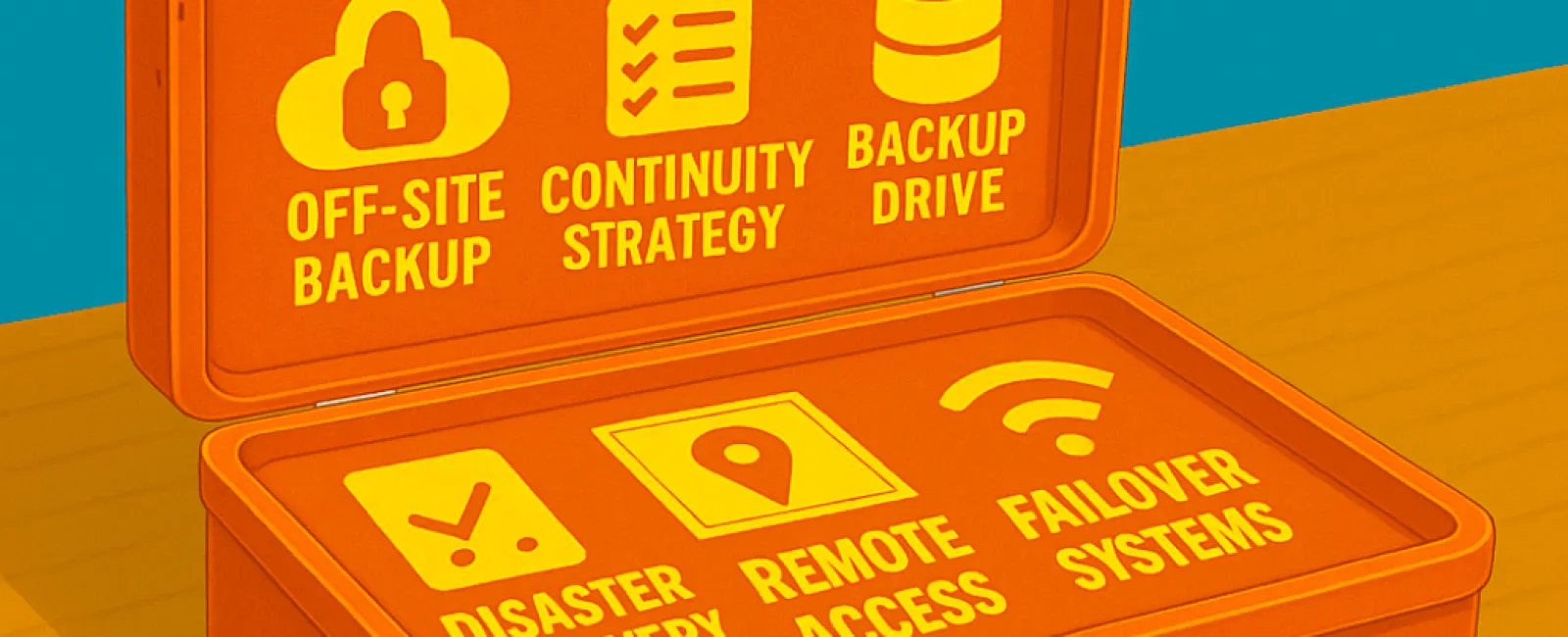July 28, 2025
Unexpected power failures, cyberattacks, equipment breakdowns, and natural calamities strike without warning, often leaving small businesses vulnerable to severe disruptions. Many believe that simply having backups is sufficient, but restoring files alone doesn't guarantee business operations continue smoothly. Without access to critical systems, the ability to support remote teams, or effective communication with clients, even brief interruptions can escalate into prolonged setbacks. Your IT partner should equip you with more than just backups—they should deliver a comprehensive strategy to keep your business operational under any circumstance.
Backups Alone Won't Cut It—You Need a Robust Continuity Plan
Backups are undeniably important, but they represent only a fraction of what's needed. A well-crafted business continuity plan proactively ensures your operations persist seamlessly during and after any disruption.
When your systems fail, files become unreachable, or your physical office is compromised, relying solely on local backup files offers little relief. Without a clear, actionable plan for rapid recovery, you risk significant losses in revenue, damage to your reputation, and potential regulatory non-compliance.
Understanding the Critical Difference: Backups vs. Business Continuity
Many businesses mistakenly equate backups with continuity, but they serve distinct purposes:
● Backups safeguard your data and enable restoration.
● Continuity ensures your business remains fully operational, regardless of the challenge.
A comprehensive continuity plan addresses vital questions such as:
● How quickly can we recover?
● Where will our team work if the office becomes inaccessible?
● Which systems are essential for ongoing operations?
● Who is responsible for initiating the recovery procedures?
It also integrates crucial elements like:
● Encrypted, off-site, and immutable backups
● Prioritized recovery objectives (RTO/RPO)
● Remote work capabilities
● Redundant infrastructure and failover mechanisms
● Regular disaster simulation exercises
If your IT provider cannot confidently guide you through these components, you're not truly protected—you're merely fortunate for now.
Could This Happen to You? Absolutely.
This isn't just a cautionary tale. Real disasters with serious consequences have impacted businesses recently:
● Florida hurricanes forced hundreds of businesses to shut down, especially those without cloud-based access.
● North Carolina flooding wiped out on-site servers, erasing critical records and invoices.
● California wildfires destroyed entire offices in the Pacific Palisades, many lacking off-site recovery plans.
● Numerous small businesses struck by ransomware attacks discovered their backups were either corrupted or never tested.
Disasters don't discriminate by size—they affect businesses like yours daily.
Essential Questions You Should Be Asking Now
If disaster strikes tomorrow, will your business keep running?
Ask your IT provider:
● How quickly can we recover if ransomware attacks?
● Are our backups regularly tested, and what systems do they cover?
● What is the plan if a flood or fire disables our office?
● Is our continuity plan aligned with industry regulations?
● Can we continue serving clients if our team must work remotely?
If you can't answer these with complete confidence, your business may already be at risk.
Disasters Are Inevitable. Downtime Doesn't Have To Be.
You can't prevent every outage, storm, or cyberattack, but you can control how your business responds.
A reliable IT provider helps you bounce back.
A great IT provider ensures you never miss a beat.
Ready to assess your business's resilience?
Click Here or call us at 281-402-2620 to schedule your FREE 15-Minute Discovery Call and let's safeguard your operations against any disaster.




